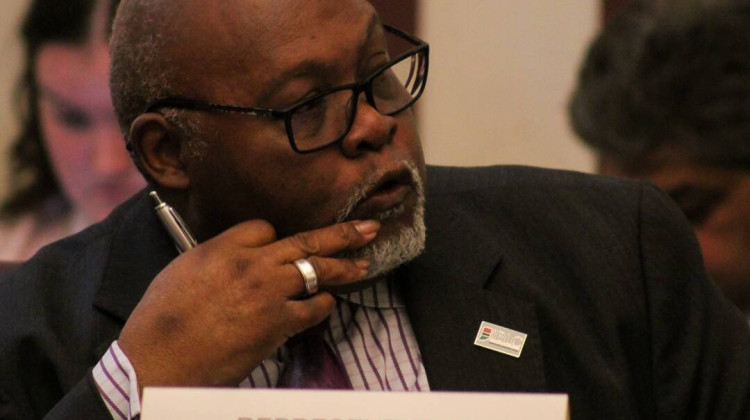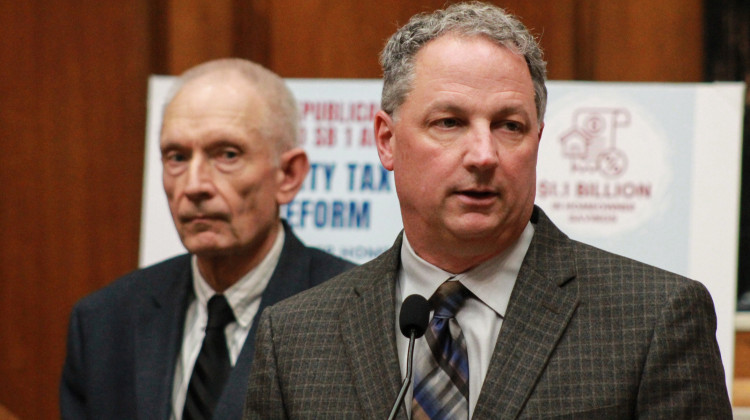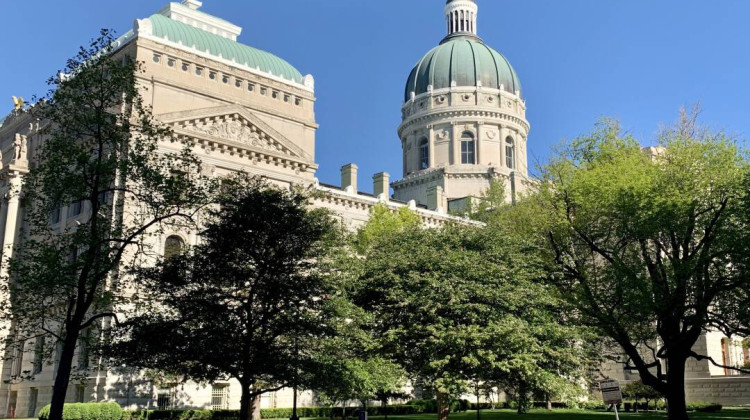
Indiana's 988 crisis hotline answers nearly 4,000 calls per month more than a year since its launch.
Brandon Smith/IPB NewsIndiana has led the country for nearly a year in the percentage of calls to the 988 hotline answered in-state.
The state Tuesday marked the progress it has made with the hotline more than a year since its launch.
The 988 hotline is for people experiencing mental health or substance use crises. And Kara Biro, state director of Behavioral Health Crisis Care, said they don’t limit what crisis means — it can be anything from stress over a new job to contemplating suicide.
“No crisis is too big or too small to reach out for support through 988,” Biro said.
Indiana’s five call centers average nearly 4,000 calls a month from Hoosiers in crisis. The average response time is nine to 10 seconds. And more than 90 percent of calls from people in Indiana are answered in-state.
Family and Social Services Administration Secretary Dr. Dan Rusyniak said it’s important to answer calls in-state because it helps better connect people to resources, especially if they’re not directly related to 988.
“If the thing that really accelerated your crisis was something like housing insecurity or food insecurity, we can deal with the crisis but then we can connect you directly to 211, who will be able to tell you where in your local community those resources are that you might be able to use,” Rusyniak said.
The state plans to expand the hotline, including the addition of assistance for those who don’t speak English, videoconferencing for the deaf and hard-of-hearing community and a text option.
Much of that will be accomplished with new state funding for mental health, $100 million over two years in the new state budget.
READ MORE: Holcomb hails mental health bills as 'sea change' for Indiana
Join the conversation and sign up for the Indiana Two-Way. Text "Indiana" to 73224. Your comments and questions in response to our weekly text help us find the answers you need on statewide issues.
Jay Chaudhary, Division of Mental Health and Addiction director, said the hotline is the springboard for an entire mental health response system. That includes mobile crisis response units and local centers to help people in crisis.
“Because we know that a mobile team without a place to take somebody that needs more help or a physical location without a community outreach component are not going to be as effective as those working together,” Chaudhary said.
Chaudhary said the state has been running a pilot program with four mobile crisis units and hopes to expand those soon.
Brandon is our Statehouse bureau chief. Contact him at bsmith@ipbs.org or follow him on Twitter at @brandonjsmith5.
9(MDAyMzk1MzA4MDE2MjY3OTY1MjM5ZDJjYQ000))
 DONATE
DONATE






 Support WFYI. We can't do it without you.
Support WFYI. We can't do it without you.